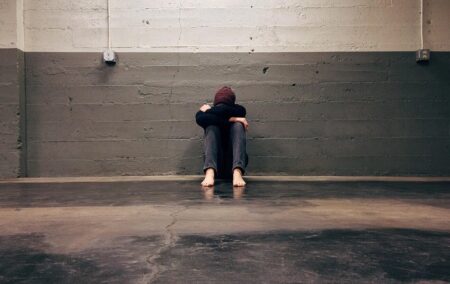Bullying is a phenomenon commonly found in schools and elsewhere.
Under new legislation, certain kinds of bullying could be criminalised. Bullying based on such things as race and disability would be considered hate speech and would become criminal if the Prevention and Combating of Hate Speech and Hate Crimes Bill were to be passed into law.
This would lead to children who bully others becoming vulnerable to entering the criminal justice system.
According to a pioneering authority on bullying, Swedish-Norwegian psychologist Dan Olweus:
‘[A] person is bullied when he or she is exposed, repeatedly and over time, to negative actions on the part of one or more other persons, and he or she has difficulty defending himself or herself.’
It has been shown to have a significant impact on the mental and physical health of young people.
No one can say that it is an acceptable practice, especially if it occurs on the basis of constitutionally prohibited grounds.
But does a child deserve to become a criminal for the harsh words they address to another? It is submitted that they certainly do not.
Bringing children into the criminal justice system in our country is seen as a last resort.
No legitimate option
The Child Justice Act creates a framework designed to ensure that children are only prosecuted if no legitimate option exists and if all other options have been exhausted.
In the event that the Bill becomes law and an act of bullying is found to have been tantamount to hate speech, one would imagine that the Child Justice Act would provide some kind of a protective shield for children.
But should this really be necessary?
Shouldn’t the law rather focus on educational, developmental, restorative, and rehabilitative approaches to children who bully others, instead of any kind of punitive element at all?
Something analogous to this situation is the conundrum that arose after the Criminal Law (Sexual Offences and Related Matters) Amendment Act came into force in 2015.
The aim of the law, no doubt, was to protect children from sexual offences.
One of these mechanisms was to create a Sex Offenders Register of those, inter alia, who had been found guilty of consensual sexual violation or penetration of a child.
The unforeseen consequence of this was that it left open the possibility of children being entered in the Register who had been engaging in consensual sexual acts with each other.
The law was amended by the case of Teddy Bear Clinic for Abused Children and Another v Minister of Justice and Constitutional Development and Another. Provided certain conditions exist – such as the ages of the children – consensual sexual activity among teenagers is no longer unlawful.
Were children brought into the criminal justice system in this instance it would be an incredible hindrance to them in the future, given the consequences of being on such a register.
Conviction for hate speech
The same can be said for a conviction of hate speech against a child who made any kind of utterance to another.
In addition to this, there already exist mechanisms to address acts of bullying that match the Bill’s definition of hate speech.
These include the Protocol for the Management and Reporting of Sexual Abuse and Harassment in Schools and the forthcoming policy on the elimination of discrimination in schools. The former, for example, identifies levels of harassment and what steps a school must take to address such instances.
It must be noted that only in the most severe of cases is the matter to be reported to the police.
If the Bill is passed, any such harassment would have to be reported much sooner, taking disciplinary power away from schools.
The downside to this is that schools in general attempt to take a problem-solving approach, or at the very least a flexible one – offering suspensions and hearings prior to sending a child into the holding cells or the courtroom.
Restorative-justice approaches are also slowly being introduced into schools.
There are also the extant mechanisms provided by the Promotion of Equality and Prevention of Unfair Discrimination Act and Protection from Harassment Act, which can be used to address discriminatory bullying in the event that a matter is taken to court.
Even this is undesirable, because it still involves putting children through a judicial proceeding – a process one would want to avoid for a child.
Section 28(2) of the Constitution states that ‘the best interests of the child are of paramount importance in every matter concerning the child’.
One cannot quite understand how rendering acts of bullying criminal could uphold this constitutional imperative.
Problems at home
It is well known that bullying is often a consequence of problems at home, or poor mental health and insecurities of the child doing the bullying.
It is abundantly clear that the problem of bullying would be significantly minimized if everyone only did better by our children.
It is within homes and within the education system that this problem should be addressed – not within the criminal justice system.
Bullying as hate speech with a criminal sanction is an absurd proposition – as is hate speech as a criminal offence at all.
It is doubtful that it is the intention of the legislature to drag legions of foul-mouthed minors to court, but that is nevertheless in danger of happening if the Bill is passed in its current form.
This is one of many reasons that the Bill is not only unnecessary but dangerous.
Certainly this problem needs to be addressed, but let us make the solution helpful instead of punitive.
The views of the writer are not necessarily the views of the Daily Friend or the IRR
If you like what you have just read, support the Daily Friend
Image by Wokandapix from Pixabay

